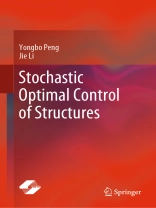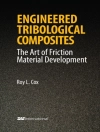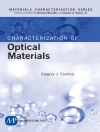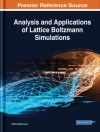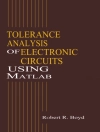This book proposes, for the first time, a basic formulation for structural control that takes into account the stochastic dynamics induced by engineering excitations in the nature of non-stationary and non-Gaussian processes. Further, it establishes the theory of and methods for stochastic optimal control of randomly-excited engineering structures in the context of probability density evolution methods, such as physically-based stochastic optimal (PSO) control. By logically integrating randomness into control gain, the book helps readers design elegant control systems, mitigate risks in civil engineering structures, and avoid the dilemmas posed by the methods predominantly applied in current practice, such as deterministic control and classical linear quadratic Gaussian (LQG) control associated with nominal white noises.
表中的内容
Preface.- Introduction.- Theoretical essentials.- PDEM based stochastic optimal control.- Probabilistic criteria of stochastic optimal control.- Generalized optimal control policy.- Stochastic optimal control of nonlinear structures.- Stochastic optimal control of wind-induced comfortability.- Stochastic optimal semi-active control of structures.- Shaking table test of controlled structures.- References.- Appendix A: Mapping from excitation vector to co-state vector.- Appendix B: Statistical linearization based LQG control.- Appendix C: Riccati matrix difference equation and discrete dynamic programming.- Index.
关于作者
Yongbo Peng is a Professor at Shanghai Institute of Disaster Prevention and Relief, Tongji University, specializing in the area of stochastic dynamics and control of structures. He completed a joint Ph.D. program at University of Southern California during 2007-2009 and earned a Ph.D. in structural engineering at Tongji University in 2009. Since then he had been dedicated to investigating successful control strategies for stochastic dynamical systems. He has published one book and more than 80 peer-reviewed papers. Prof. Peng was admitted to the Shanghai Pujiang Talents Program in 2011, and was the nominated author of the National Excellent Doctoral Dissertation of China in 2013 and received the Award for Young Talents from the Chinese Society for Vibration Engineering’s Science & Technology in 2016. He is currently a member and the secretary general of the Chinese Society of Vibration Engineering’s Random Vibration Committee.
Jie Li is currently a Distinguished Professorat the College of Civil Engineering, Tongji University, specializing in earthquake engineering and stochastic mechanics of structures. Prof. Li received his Ph.D. in civil engineering from Tongji University in 1988, and an honorary doctorate in engineering from Aalborg University, Denmark in 2013. He was awarded the 2014 Alfred M. Freudenthal Medal by the ASCE. He has authored seven books and co-authored over 400 academic papers. Prof. Li is currently the President of the International Association for Structural Safety and Reliability (IASSAR), and the Director of the Board of the International Civil Engineering Risk and Reliability Association (CERRA). He is also the Vice-Chairman of the Chinese Society of Vibration Engineering and the Chairman of the Architectural Society of China’s Structural Computational Theory and Engineering Applications Committee. He is the Editor-in-Chief of the Journal of Tongji University (Natural Science Series) and serves on the editorial boards of 10 other international and Chinese academic journals.
